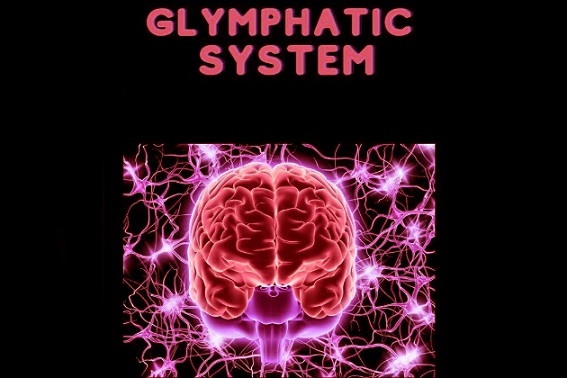Brain's Waste Disposal System Does Haywire in Many Post-COVID-19 Individuals, Causing Various Neurological Symptoms
Nikhil Prasad Fact checked by:Thailand Medical News Team Apr 23, 2025 9 months, 2 weeks, 6 days, 22 hours, 1 minute ago
Medical News: A new study from researchers in China has found that the brain’s internal “cleaning system” becomes highly overactive in people recovering from COVID-19, especially around three months after they test negative. This overactivity may be linked to long-term symptoms such as brain fog, memory problems, and mental fatigue—common complaints among those suffering from Long COVID.
 Brain's Waste Disposal System Does Haywire in Many Post-COVID-19 Individuals, Causing Various Neurological Symptoms
Brain's Waste Disposal System Does Haywire in Many Post-COVID-19 Individuals, Causing Various Neurological Symptoms
The research was conducted by scientists from the Department of Medical Imaging at Yulin Hospital and The First Affiliated Hospital of Xi'an Jiaotong University, in collaboration with experts from Xinyuan Hospital of Yulin, the School of Future Technology at Xi’an Jiaotong University, The First Hospital Of Yulin, and MR Research Collaboration at Siemens Healthineers in Shanghai. The team used a special non-invasive imaging technique called Diffusion Tensor Imaging-Analysis Along the Perivascular Space (DTI-ALPS) to monitor how the brain’s waste-clearing system—known as the glymphatic system—behaves over time in COVID-19 survivors. This
Medical News report explores how these findings might help explain the neurological symptoms seen in Long COVID patients.
The Glymphatic System and Its COVID Connection
The glymphatic system acts like a sanitation crew in the brain. It uses channels along blood vessels to flush out waste products and toxins through the movement of cerebrospinal fluid. When this system doesn’t function properly, toxins can build up in the brain, potentially leading to cognitive issues.
Past research has already shown that COVID-19 can affect the brain in several ways, from inflammation to disruptions in the blood–brain barrier. However, few studies have explored how the infection might change the brain’s ability to clear waste. This new study focused precisely on that.
The researchers followed 31 COVID-19 survivors at one month, three months, and one year after they had cleared the virus. These participants underwent both brain scans and cognitive tests. Their results were compared to 30 healthy individuals who had never been infected.
A Peak in Brain Drain Activity at 3 Months
The imaging technique used in the study, DTI-ALPS, measured the movement of fluids through the perivascular spaces of the brain, offering a snapshot of how well the glymphatic system was functioning. Results showed that the glymphatic system was significantly more active in COVID survivors at the three-month mark compared to healthy controls. This was true in both hemispheres of the brain.
Interestingly, the increased glymphatic activity was not present at the one-month or twelve-month follow-ups, suggesting that the brain may ramp up its waste-clearing efforts mid-recovery before slowly returning to normal function. This "spike" in activity was co
rrelated with worse cognitive performance and higher mental fatigue at that same time point.
Cognitive Decline and Mental Fatigue Mirror Glymphatic Surge
Cognitive testing revealed that participants scored significantly lower on the Montreal Cognitive Assessment (MoCA) at three months post-COVID compared to the healthy control group. They also reported higher levels of mental fatigue across all follow-up points.
The researchers found a strong relationship between glymphatic system activity and cognitive health. The more overactive the glymphatic system was, the worse the participants performed on cognitive tests and the more mental fatigue they reported. In short, the brain seemed to be working overtime to cleanse itself—and this effort may have come at the cost of mental clarity.
What Could Be Driving These Changes
One theory is that after a COVID-19 infection, the brain becomes inflamed, triggering the glymphatic system to work harder to remove waste and inflammatory molecules. Some experts believe this increased activity might be the body’s way of trying to recover from the neurological assault of the virus.
Others suggest that because COVID-19 may reduce the outflow of cerebrospinal fluid by damaging olfactory sensory neurons, the glymphatic system compensates by increasing fluid movement through other routes. This would explain the surge in glymphatic activity seen at the three-month mark.
Signs of Hope but Also Concern
The good news is that by the one-year follow-up, most participants’ cognitive test scores returned to normal, and their glymphatic function appeared to stabilize. However, mental fatigue, while improved, remained significantly higher than in healthy individuals.
Some patients continued to show abnormally high glymphatic activity even after 12 months, indicating incomplete recovery. These individuals may be among the growing number of people living with persistent neurological symptoms of Long COVID.
Conclusion
This important study sheds light on one of the lesser-known effects of COVID-19—the impact it has on the brain’s internal plumbing system. By using a non-invasive MRI technique to track changes in the brain’s glymphatic function over time, researchers discovered that COVID-19 survivors experience a peak in waste-clearing activity about three months after recovery. This spike is linked with temporary declines in memory and thinking ability, as well as sustained mental fatigue. These findings suggest that the glymphatic system could be both a marker and a potential target for therapies aimed at easing the brain-related symptoms of Long COVID. Future treatments might one day focus on optimizing this natural brain drainage system to help patients fully recover their cognitive health after COVID-19. However, larger and longer-term studies are needed to validate these results and better understand the underlying biological processes.
The study findings were published in the peer reviewed journal: Frontiers in Psychology.
https://www.frontiersin.org/journals/psychology/articles/10.3389/fpsyg.2025.1465660/full
For the latest COVID-19 News, keep on logging to Thailand
Medical News.
Read Also:
https://www.thailandmedical.news/news/study-reveals-alarming-connection-between-disruption-of-brain-waste-clearance-and-long-covid-symptoms
https://www.thailandmedical.news/news/breaking-covid-19-news-study-alarmingly-finds-that-recovered-individuals-who-only-had-mild-covid-19-exhibit-glymphatic-system-dysfunction
https://www.thailandmedical.news/news/covid-19-causes-glymphatic-drainage-dysfunction-and-bbb-disruption-that-contributes-to-neuroaxonal-injury
https://www.thailandmedical.news/articles/coronavirus
https://www.thailandmedical.news/pages/thailand_doctors_listings
https://www.thailandmedical.news/articles/hospital-news
